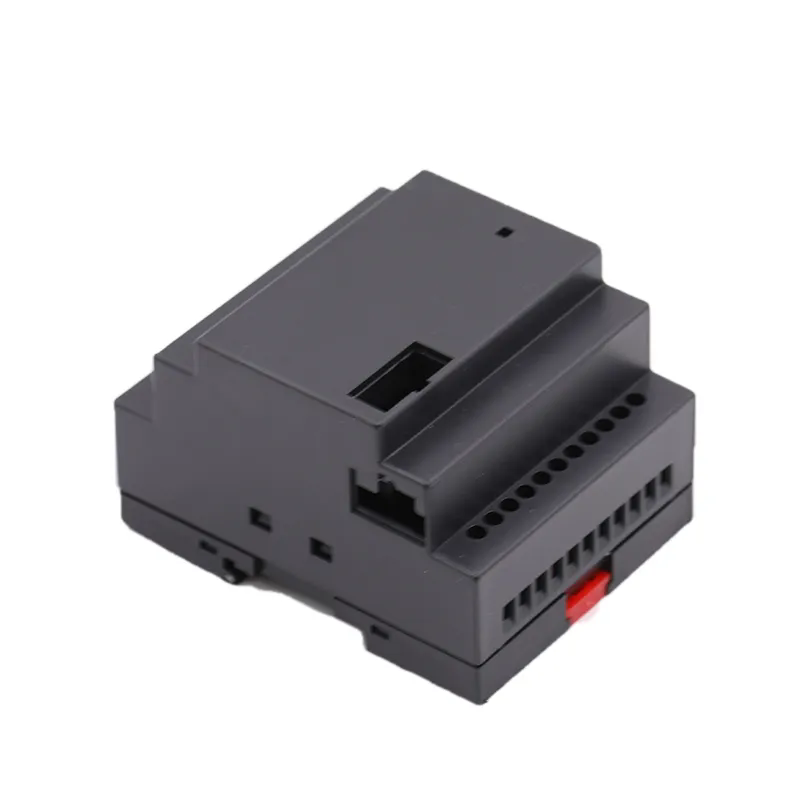The Importance of Plastic Enclosures in the Electric Meter Industry
2024-10-17
The electric meter industry has evolved significantly, embracing new technologies to meet the growing demands for energy management, smart metering, and safety. Among the essential components in this field are plastic enclosures. These enclosures play a crucial role in protecting electrical meters from environmental and physical damage, ensuring safety, functionality, and long-term reliability.
In this blog, we’ll explore what plastic enclosures are, their benefits, types, applications, and considerations when choosing the right enclosure for your electric meter needs.
What is an Electric Meter Plastic Enclosure?
An electric meter plastic enclosure is a protective casing made from durable plastics such as polycarbonate (PC), acrylonitrile butadiene styrene (ABS), or other engineered materials. It houses the electrical components of meters used for measuring power consumption.
These enclosures safeguard the internal electronics from moisture, dust, tampering, and extreme temperatures, ensuring that meters function accurately and remain durable in a variety of environmental conditions.
Benefits of Plastic Enclosures in the Electric Meter Industry
1. Lightweight and Durable
Plastic enclosures are lighter than their metal counterparts, making transportation, installation, and maintenance easier. Despite their lightweight nature, they offer excellent impact resistance and can withstand shocks and vibrations.
2. Weather Resistance
Most electric meters are installed outdoors, exposed to rain, sunlight, and varying temperatures. Plastic enclosures, especially those made from UV-resistant polycarbonate, ensure the device remains protected against corrosion, rust, and extreme weather.
3. Electrical Insulation
Unlike metal, plastic is a non-conductive material, reducing the risk of short circuits and electrical hazards. This makes plastic enclosures ideal for protecting the components within and ensuring user safety.
4. Anti-Tampering Features
Modern plastic enclosures can be equipped with locking mechanisms, seals, or tamper-evident designs, which prevent unauthorized access and manipulation of the meter.
5. Cost-Effective
Compared to metal enclosures, plastic options are more affordable and provide a balance between performance and cost. This makes them a popular choice for utilities managing large-scale meter installations.
6. Design Flexibility
Plastic materials allow for customized molding into various shapes and sizes, accommodating different meter designs. Transparent covers can also be added for easy visual access to meter readings without opening the enclosure.
Types of Plastic Enclosures for Electric Meters
1. Polycarbonate (PC) Enclosures
- Known for high impact resistance and UV protection.
- Suitable for both indoor and outdoor installations.
2. ABS (Acrylonitrile Butadiene Styrene) Enclosures
- Offers good mechanical strength and chemical resistance.
- Ideal for meters installed indoors or in controlled environments.
3. Glass-Fiber Reinforced Plastic Enclosures
- Provides additional strength and heat resistance for high-temperature environments.
- Commonly used in industrial metering systems.
4. Transparent Plastic Covers
- Enables easy visual meter reading without needing to open the case.
- Often used for residential applications.
Applications of Plastic Enclosures in the Electric Meter Industry
Plastic enclosures are used in various types of meters and metering systems, including:
- Smart Meters: Advanced metering systems that collect and transmit real-time usage data.
- Prepaid Meters: Used for pay-as-you-go energy systems.
- Residential Meters: Installed in homes to measure power consumption.
- Commercial and Industrial Meters: Monitor electricity usage in larger facilities or manufacturing plants.
- Multi-Tenant Metering Systems: Track energy use in apartment complexes or shared buildings.
Key Factors to Consider When Choosing a Plastic Enclosure
1. Environmental Conditions
For outdoor installations, choose an enclosure with UV resistance and waterproof sealing to withstand exposure to sun, rain, and dust.
2. Size and Design
Ensure the enclosure is large enough to house all internal components with proper ventilation and space for wiring. Custom designs may also be needed for specific meters.
3. Impact and Heat Resistance
In areas prone to physical impact or high temperatures, opt for polycarbonate or reinforced plastic enclosures to ensure durability.
4. Tamper Resistance
If the meter is located in a public area, use enclosures with locks and tamper-evident seals to prevent unauthorized access.
5. Transparency for Meter Reading
A transparent cover can save time by allowing easy access to readings without opening the enclosure. This is particularly helpful for residential meters.
Installation and Maintenance Tips
1. Inspect Regularly: Periodically check the enclosure for signs of wear, cracks, or UV damage.
2. Securely Mount: Ensure the enclosure is properly mounted to prevent movement or vibrations that could disrupt the meter’s operation.
3. Check Sealing: Verify that the seals are intact to keep out dust, water, and other contaminants.
4. Avoid Overheating: Ensure proper ventilation within the enclosure to prevent overheating, especially for high-power meters.
5. Update Locks and Seals: Replace tamper-proof seals regularly to maintain security.
Conclusion
Plastic enclosures are an essential part of the electric meter industry, offering lightweight, cost-effective, and durable protection for a wide range of metering systems. Their ability to withstand harsh environments, provide electrical insulation, and offer anti-tampering features makes them ideal for both residential and industrial applications.
By choosing the right type of plastic enclosure, businesses and utilities can enhance the reliability, accuracy, and safety of their metering systems. With the growing adoption of smart meters and advanced energy management systems, plastic enclosures will continue to play a vital role in modern energy infrastructure.
Whether you need an enclosure for a simple residential meter or a complex smart metering system, investing in high-quality plastic enclosures ensures long-lasting performance and trouble-free operation.



